Beyond The Human Condition
Page 68 of
Print Edition 4. Summary of the Concept
THE unspeakable suffering, misery, torment, anguish and damage that we have inflicted on ourselves and our fellows on this planet — the animals, plants, soil, sea, rock and air — were unavoidable consequences of our conscious mind’s or intellect’s necessary search for knowledge.
It helps relieve the guilt we have suffered to know that any species developing a mind from an instinct-controlled state to an intellect-controlled state would have to go through the stages we have been through. Just as a child must grow through infancy, childhood, adolescence, and only then reach adulthood, so our species has had to develop through these stages.
In infancy, consciousness appears and we discover self. In childhood, we play with the power of free will that emerging consciousness brings. In adolescence, the stage humanity has been in for 2 million years, we discover the responsibility of free will and go in search of the understanding we need to successfully self-adjust. It is when we undertake this search that a battle with our instinctive self develops. The nature of the battle is such that, tragically and unavoidably, the instinct makes the intellect feel guilty or insecure. This happens because the instinct is ignorant or unaware of the conscious mind’s need to search for knowledge. The result of the battlePage 69 of
Print Edition is that the intellect becomes upset. Unavoidably it becomes angry, egocentric and alienated.
To end the upset adolescent state and enter adulthood the intellect has to find the understanding that explains it is not bad or guilty for searching for knowledge. Adolescence is the time of the search for the intellect’s or conscious mind’s identity — for understanding of itself; specifically, for the reason it is good and not bad. Finding this understanding, as has now happened, allows the upset to subside. Humanity is about to leave the turbulent adolescent stage and enter the peaceful maturity of adulthood.
To disarm our upset it has been necessary to explain what we have only been able to feel. The expressions of frustrated and, at times, exalted (momentarily relieved) ego associated with the human condition are clear in the photographs overleaf.
Page 70 of
Print Edition We now know the source of our
deep-seated egocentricity and anger
I saw [President] Sukarno on a pilgrimage to his mother in Eastern Java whom he had not seen for many years. As he knelt at her feet to receive her blessing, I found myself profoundly stirred. More, I . . . was nearly choked by the collective emotion of the crowd of seventy thousand who had followed him and were sobbing with relief because the suppressed and accumulated longing of centuries to see someone of their own kind leading them again now had found a living symbol at last. But again, where did such volcanic forces in the human being come from?
. . . I suspected that we would never know how to set about dealing with these . . . forces until we knew more of their origin, nature and areas of growth.
Laurens van der Post, Jung and the Story of Our Time, 1976.
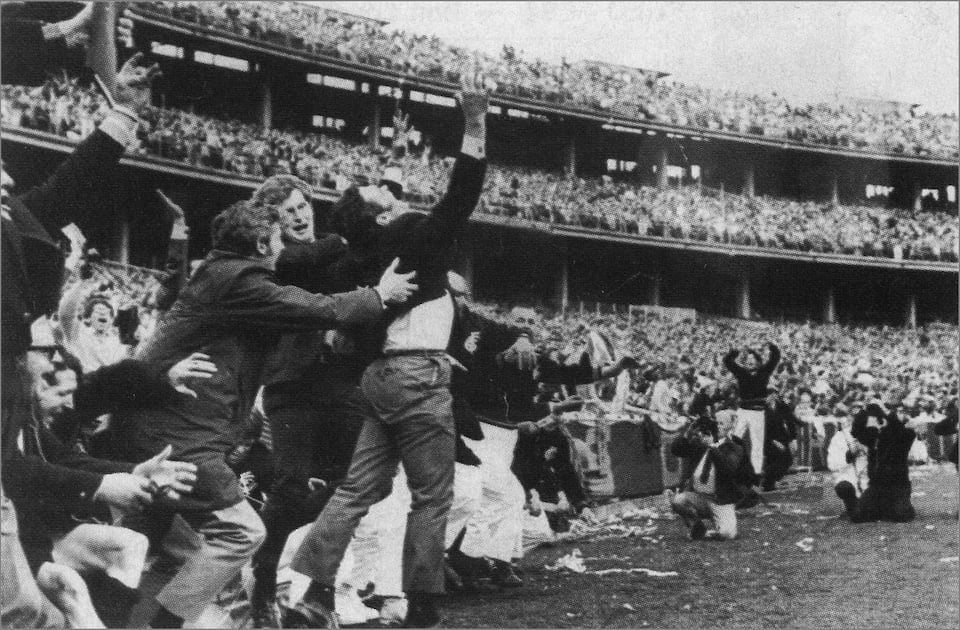
Photograph by Geoff Bull
Carlton coach Ron Barassi exalts in his team’s victory in the 1970
Victorian Football league grand final, one of the most memorable ever.
Page 71 of
Print Edition
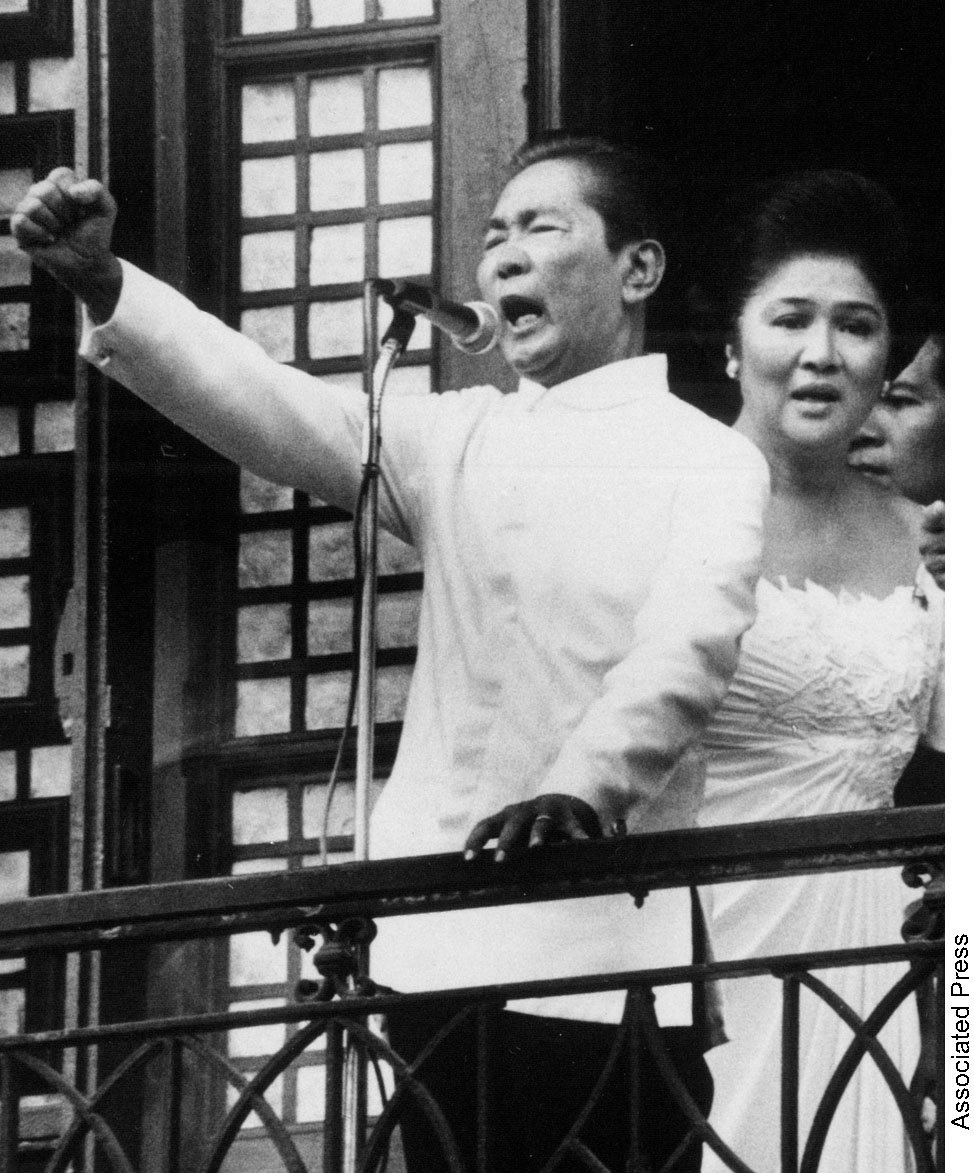
Ferdinand Marcos with his wife Imelda defies the world from the balcony of the Presidential Palace after taking the oath of office as president of the Philippines on February 25, 1986. Elsewhere in Manila on the same day, the representative of the People’s Revolution, Mrs Corazon Aquino, was also being sworn in as president. The following day Marcos and his family fled the Philippines.
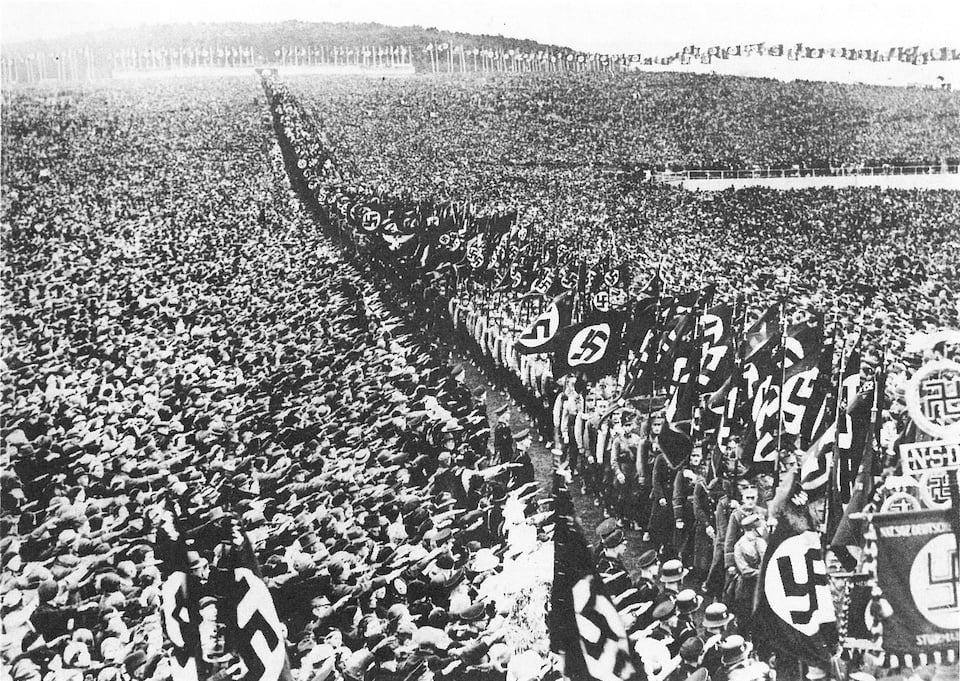
Photograph © Camera Press LTD
Nazi Rally in pre-war Germany.
Page 72 of
Print Edition
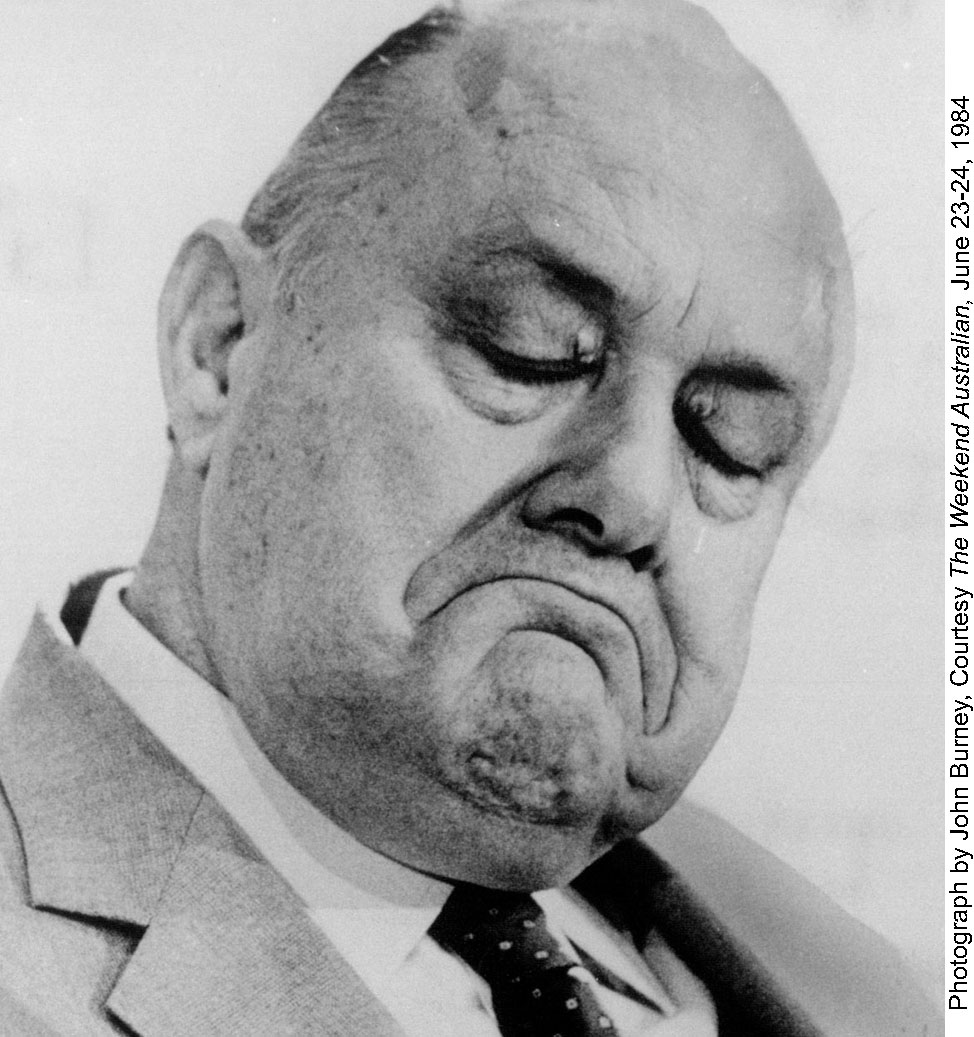
Sir Robert Muldoon, New Zealand Prime Minister and leader of the right wing
National Party, defies the ideals, giving anti-apartheid demonstrators who confronted
him in Melbourne on June 22, 1984 ‘a mark of C-minus: Could do better’.
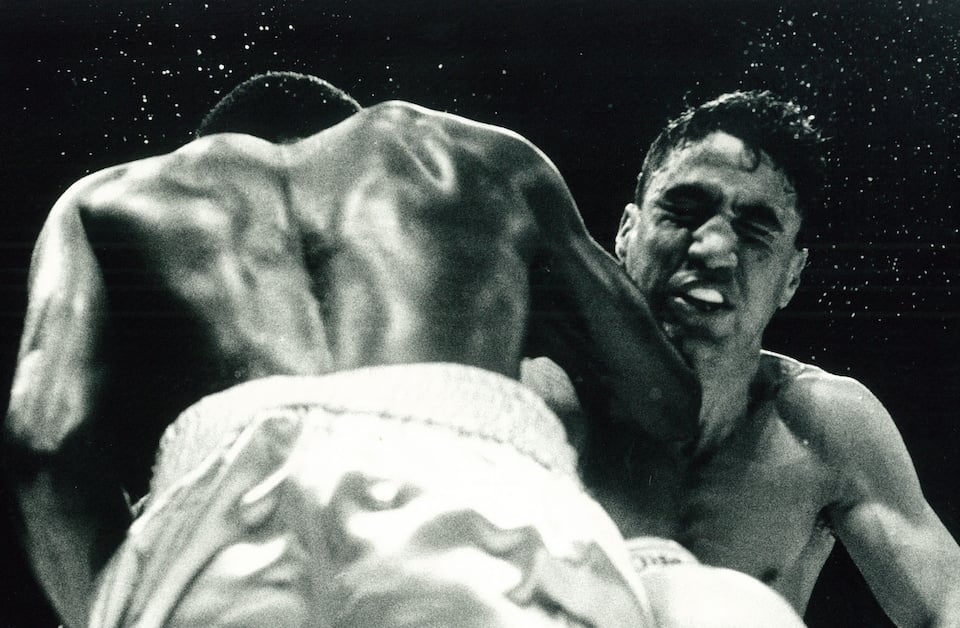
Photograph by Gary Graham
Australian boxing champion Jeff Fenech takes a punch from American Steve McCrory in Fenech’s successful 1986 defence of his IBF world bantam-weight title.


